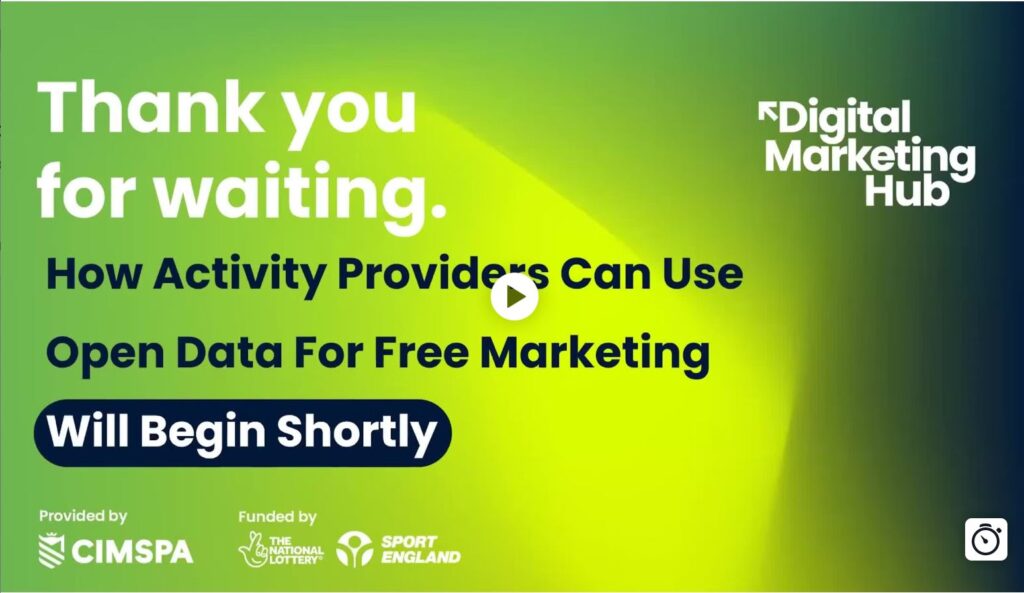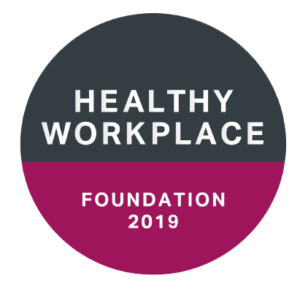Introduction
It should be as easy to find and book a yoga class in Barnet as it is to book a hotel room in Barcelona.
But currently it isn’t. Research from Sport England shows that one fifth of adults have been put off doing a physical activity because it was too difficult to find or book online.
That’s why we’ve been working with Open Active for the last 6 years to change this.
Open Active is a community-led initiative for the sport and physical activity sector. Publishing open data about where, when and what activities take place can make it easier for people to find and book activities online.
Why use open data?
We know that many people are searching online for local ways to be active. There is also growing workforce of social prescribers who are looking for suitable opportunities to help their patients become active.
Unfortunately, many smaller sport and activity providers still have a limited or zero online presence – which means they are hard to find.
They may have some leaflets printed or a mention in a local authority magazine. Maybe a phone number to call but no information about what sessions are running when and an easy way to book on to that session.
Even if they have a website – it’s probably not going to show up on the first page of Google when someone is searching for it.
By publishing activity session information in a standardised open data format – activity providers and commisioners can get their session information onto the activity finders, apps and services that people are using to find ways to be active.
What you’ll learn
In this guide we’ll introduce what open data is and how activity providers can use it as part of their marketing mix.
- What is open data
- Tools to publish your activities as open data
- Activity finders using open data
- The impact of open data so far
- Top tips to get started
Who should read this?
This guide is for:
- Activity providers such as sports and community clubs or personal trainers
- People working in leisure or health facilities
- Local authority leisure, sport development or public health leads
- Digital and tech companies that provide activity programmes
Open data is data that is available for anyone to access, use, and share.
If you’ve used Google Maps or Citymapper the information about bus and train times is open data provided by the transport companies It is even used to tackle crime through services like BikeChecker.
Open Active beleive that open data can be used to help more people get active.
Improving the users’ experience
By publishing quality open data, activity providers will make it easier for websites and apps to use it and create information that people can act onEnabling people to easily find and book activities will help increase participation.
Creating innovation in the sector
Open data is driving a new wave of innovative apps, websites and products. By publishing data openly, activity providers and national bodies can help stimulate new ideas and ways for getting people active.
Benefiting activity providers
The more data about activities is openly available, the more people are likely to find out about and attend those activities. Open data can also improve efficiency for activity providers, since by using it they can avoid repeat data collection.
To learn more about the use of open data in physical activity you can access a free online learning course from Open Active
OpenActive helps activity providers to publish information on the activities they provide in a standardised format, which can then be fed into other websites and apps that show available activities.
This makes it easier for the people who are searching for an activity to find your session details.
Making the process as straightforward as possible takes away some of the barriers to participation and will hopefully encourage more people to become involved in physical activity.
Activity providers can pick from a suite of booking tools (many with free tiers) that will let you publish details of your sessions online – so that they are then shown on the ever growing number of open data powered activity finders.
- Open Sessions is a completely free tool which you can use to publish your session details.
- There are also lots of other booking tools which will allow you to publish sessions as open data (many of these will include other useful functions such as taking payment and managing registers etc)
In the same way that you can probably find your local takeaway on Just Eat, Deliveroo and Uber Eats, there are more and more places you can search for and find local activities.
Many local authorities and active partnerships have activity finders which enable their residents to search for all activities in their local area. Examples include:
- Find Your Active – Active Essex
- Moving More – Herts Sports Partnership
- Active Thames (Port of London Authority)
Meanwhile other activity finders help people find activities around a particular activity type, topic or interest. Examples include:
By publishing your sessions to lots of activity finders it makes it more likely that they’ll be found.
Impact of Open Data
OpenActive data from February 2022 shows over 600,000 sessions are published monthly by almost 70 organisations. In 2019, an external impact assessment of the OpenActive data standards estimated that the standards could help avoid up to 110 premature deaths per year, save up to £3 million per year in health costs and generate up to a £20 million per year increase in productivity.
Individual organisations also benefit from the increased access to data. In 2020, one case study found that leisure operator Everyone Active – which provides physical activities like gym classes and swimming lessons – gained almost 11,500 customers at its facilities (36% of whom had never used an Everyone Active service before) from its partnership with a data aggregator.
Using open data about outdoor activities also helped Ordnance Survey meet the needs of a wider group of people as part of their Get Outside campaign.
OpenActive helps activity providers to publish information on the activities they provide in a standardised format, which can then be fed into other websites and apps that show available activities.
- Find out if there is a relevant activity finder to get your session on.
If your local authority or active partnership or national governing body is actively promoting their website to an audience of people who might be interested in your session – then getting your sessions on there could be free marketing.
- Try publishing one of your sessions
You can use a tool like Open Sessions to quickly publish your session in open data format and then see how it appears on the activity finder.
- Provide good quality information about the session
Make sure to include a great description of the session, real pictures and clear information about how to express an interest or book a session.
- If it’s working well, consider upgrading to a paid booking system with more features
You can find a list of booking tools that publish your sessions as open data on the OpenActive website. Many of these will include other useful functions such as taking payment and managing registers etc.
Summary
Watch the full webinar
We’ve partnered with the Digital Marketing Hub from CIMSPA and Sport England to create a webinar on using open data to promote your local activity sessions.
- Sign up for a free account here: www.digital.cimspa.co.uk
- Access the webinar from London Sport and the ODI here: https://community.cimspa.co.uk/posts/webinar-boxset-%F0%9F%8E%A6-how-activity-providers-can-use-open-data-for-free-marketing-with-london-sport-open-data
Join our community
Our slack community features founders and leaders within the Sports, Health and Wellbeing Tech sector. This includes those who have been through our accelerator programme (2017-2021).






